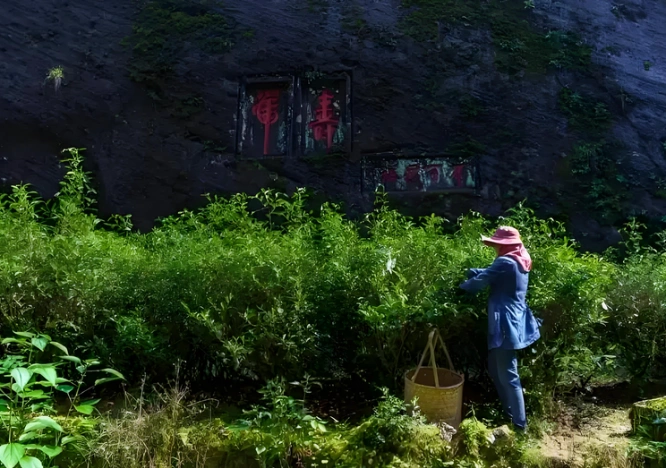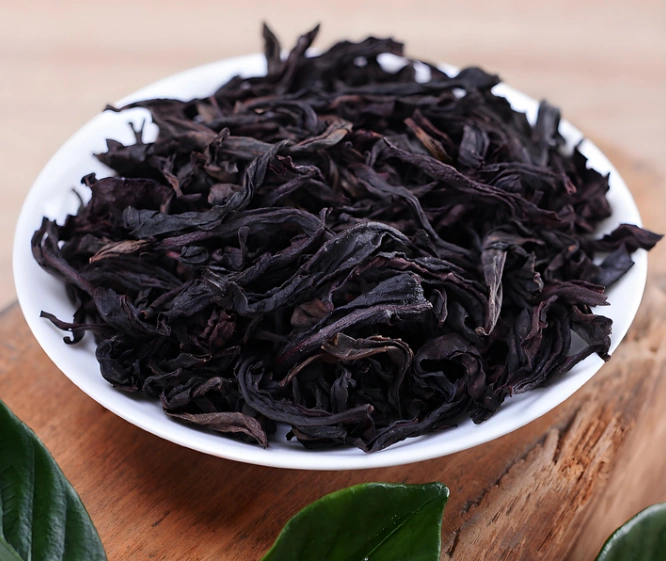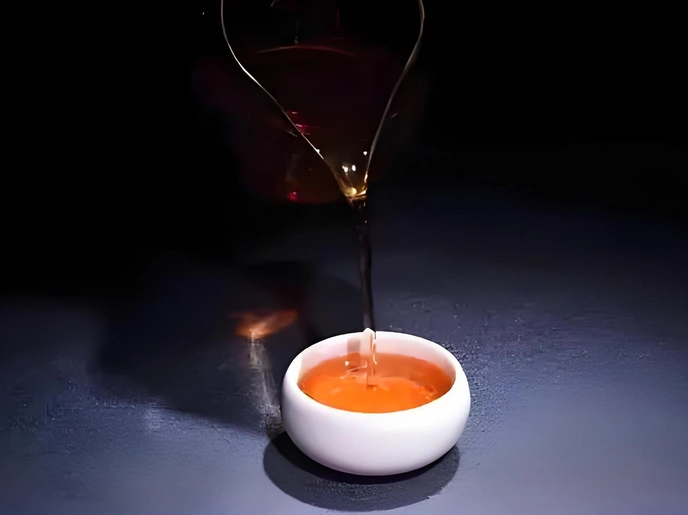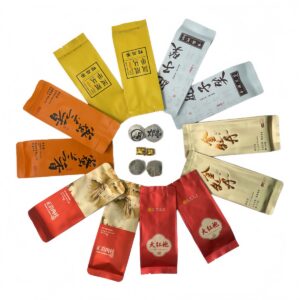Organic oolong tea isn’t just another beverage—it’s a carefully cultivated experience that delights your palate and nurtures your health. Imagine opening a pouch of pristine, pesticide‑free leaves: the fragrance is alive with floral orchid notes and a whisper of roasted chestnut. As you steep a teaspoon in near‑boiling water, the amber liquor blooms, releasing a silky sweetness and gentle warmth. From first inhale to lingering finish, every moment reminds you why choosing organic oolong tea matters—both for your wellbeing and the planet that sustains these exquisite leaves.
1. What Is Organic Oolong Tea?
At its heart, organic oolong tea is defined by three pillars:
- Certified Cultivation: Grown without synthetic pesticides, herbicides, or fertilizers. Organic farms rely on natural compost, shade trees, and biodiversity to keep pests in check.
- Sustainable Practices: Soil health is preserved, water sources are protected, and ecosystems flourish—ensuring that each harvest gives back to the land.
- Rigorous Standards: Accredited bodies like USDA Organic or EU Organic inspect every step, from planting to packaging, guaranteeing purity from leaf to cup.
By selecting organic oolong tea, you choose a cup that tastes vibrant and supports an eco‑friendly agricultural model.

2. Flavor & Aroma: The Organic Difference
Why do organic leaves often taste brighter? Without chemical residues to mask their essence, organic oolongs reveal their true character:
- Purity of Aroma: Inhale layers of orchid‑like florals, ripe peach, or honey‑sweet fruit—notes that can be dulled by conventional processing.
- Clean, Smooth Body: A silky mouthfeel with clear, lingering sweetness. You’ll detect subtle mineral and toasty hints, unclouded by any off‑flavors.
- Dynamic Finish: Organic leaves retain their vitality through multiple infusions, each cup offering renewed depth and clarity.
When you sip organic oolong tea, you taste the unadulterated voice of the leaf—an authentic expression of terroir.
3. Health Benefits of Organic Oolong Tea
Beyond its captivating flavor, organic oolong tea delivers proven wellness perks:
- Antioxidant Power: Rich in polyphenols like EGCG and theaflavins, oolong helps neutralize free radicals, supporting cellular health and radiant skin.
- Metabolism Support: A controlled trial showed that drinking oolong daily for six weeks increased fat oxidation by 12%, aiding healthy weight management【1】.
- Gentle Energy & Focus: With 30–50 mg of natural caffeine per cup plus L‑theanine, organic oolong provides sustained alertness and calm focus—ideal for busy mornings or midday slumps.
“Participants who consumed oolong tea saw a measurable boost in fat metabolism over six weeks.”
Read more →【1】
Choosing organic oolong tea means sipping a brew that cares for your body as much as it delights your senses.
4. Top Organic Oolong Tea Varieties
Explore three celebrated organic styles, each offering a unique taste journey:
4.1 Anxi Tieguanyin Tea
Hailing from Fujian Province’s Anxi County, Anxi Tieguanyin tea boasts a floral‑orchid bouquet and delicate honey sweetness. Organic Tieguanyin leaves unfurl into a pale golden infusion, with a smooth, creamy body that soothes the palate.
4.2 Wuyi Rock Oolong Tea
From the misty cliffs of the Wuyi Mountains, Wuyi rock oolong tea reveals a rich, mineral‑driven depth. Organic Wuyi teas deliver smoky, roasted nuances layered atop a firm slate‑like backbone, creating a robust yet refined cup.
4.3 Phoenix Dan Cong Oolong Tea
Grown in Guangdong’s Phoenix Mountain, Phoenix Dan Cong oolong tea is renowned for its natural honeyed fruit complexity. Organic Dan Cong leaves yield a vivid amber liquor with fragrant notes of lychee, apricot, and cinnamon spice.
These three varieties highlight why best oolong tea is often synonymous with organic craftsmanship.

5. How to Brew Your Organic Oolong Tea
Mastering the perfect cup requires simple precision:
- Water Quality & Temperature: Use filtered spring water heated to 190–205 °F (88–96 °C). Slightly cooler for Tieguanyin, hotter for rock oolongs.
- Leaf-to-Water Ratio: Measure 2 g of leaves per 6 oz (180 ml) water. A digital scale and tea scoop ensure consistency.
- Steeping Time:
- Lightly oxidized (Anxi Tieguanyin): 1.5–2 minutes
- Medium roast (Dan Cong): 2–3 minutes
- Heavily roasted (Wuyi rock): 3–4 minutes
- Multiple Infusions: Organic leaves can yield 4–6 brews. Increase steep time by 30 seconds with each subsequent infusion.
- Mindful Appreciation: Sip slowly, observe the evolving aroma and flavor layers, and let each cup be a moment of calm.
By following these steps, your organic oolong tea will reveal its full spectrum of taste and vitality.
6. Best Organic Oolong Tea Recommendations
Elevate your home tea cabinet with these top organic selections from Tanbiwencha:
- Organic Phoenix Dan Cong Oolong Tea
Shop now →
Experience the honeyed fruit symphony of Phoenix Dan Cong, harvested under shade trees and certified organic. - Organic Da Hong Pao Rock Tea
Shop now →
Savor the smoky, mineral elegance of Wuyi’s famed Big Red Robe, grown on protected organic terraces. - Organic Tieguanyin Oolong Tea
Shop now →
Delight in the orchid‑like florals and creamy sweetness of Anxi’s signature tea, cultivated with organic integrity.
These curated picks ensure you buy organic oolong tea that’s as pure as it is delicious.
7. Organic Oolong Tea vs White Tea
Both teas share organic virtues but offer distinct experiences:
| Aspect | Organic Oolong Tea | Organic White Tea |
|---|---|---|
| Processing | Partial oxidation (10–80%) | Minimal: wither and dry |
| Flavor | Layered: floral, fruity, roasted | Subtle: floral, honeysuckle notes |
| Caffeine | Moderate (30–50 mg) | Low (< 15 mg) |
| Best for | Mindful sipping, metabolism support | Gentle mornings, low‑stimulus breaks |
Rotate between both to keep your tea ritual vibrant and varied.

8. Where to Buy Authentic Organic Oolong Tea Online
Finding genuine organic oolong can be challenging. Follow these tips when you buy organic oolong tea online:
- Certification Details: Look for USDA Organic or EU Organic seals on the product page.
- Harvest Information: Choose teas with clear harvest dates and origin regions.
- Vendor Transparency: Trusted shops like Tanbiwencha.com provide lab tests, farming stories, and customer reviews.
- Sustainable Packaging: Biodegradable or recyclable tea tins and compostable foil liners signal a truly organic ethos.
Armed with this knowledge, you’ll confidently select authentic, high‑quality organic oolongs every time.
Conclusion & Call to Action
From the sun‑kissed fields of Anxi to the fog‑shrouded cliffs of Wuyi, organic oolong tea captures the essence of terroir, sustainability, and sensory delight. With vibrant aromas, nuanced flavors, and proven health benefits—backed by scientific research—it transforms daily tea breaks into mindful celebrations. Ready to elevate your tea ritual? Visit Tanbiwencha.com now to explore our curated organic Phoenix Dan Cong, Da Hong Pao, and Tieguanyin selections. Your next extraordinary cup is just a click away.



